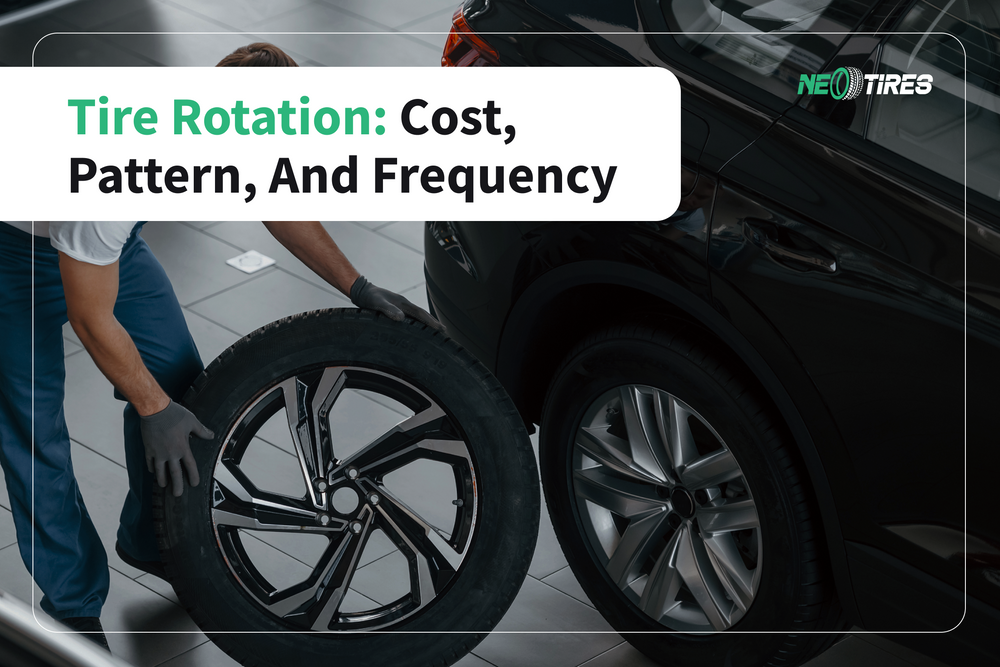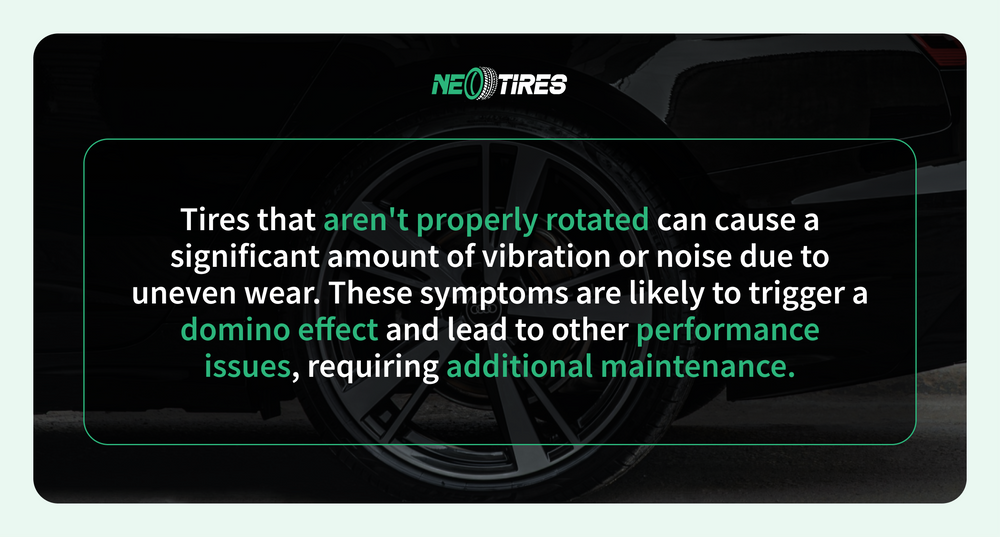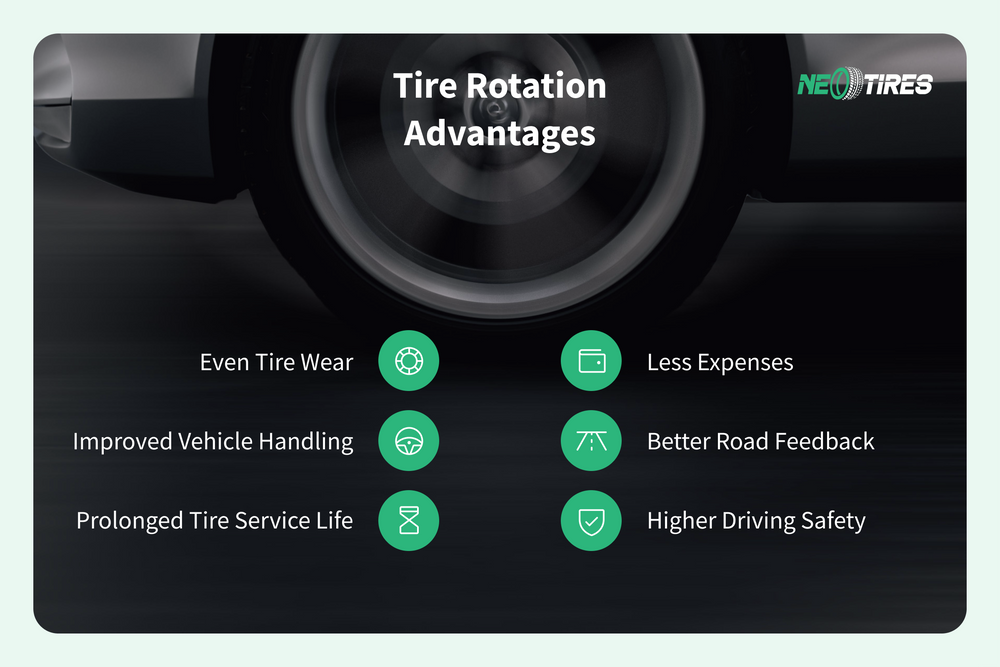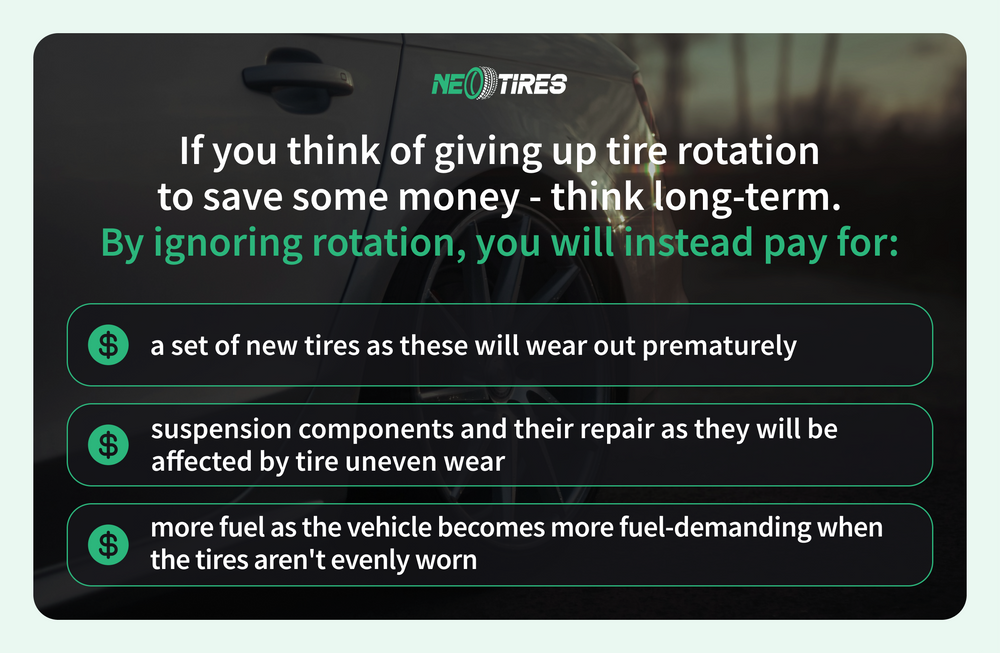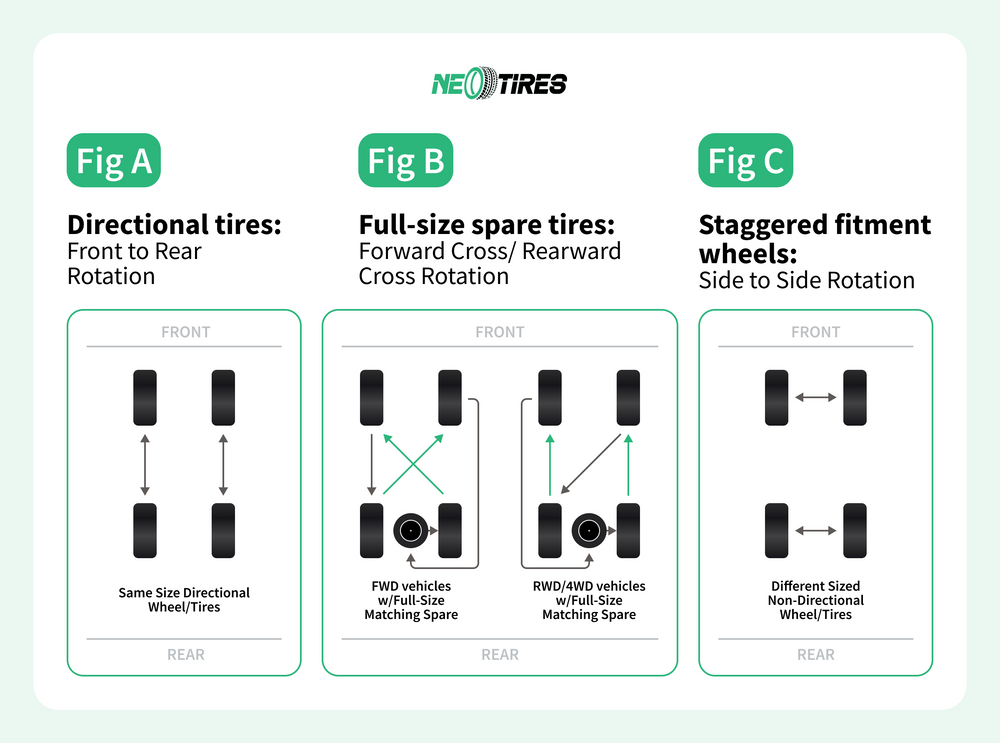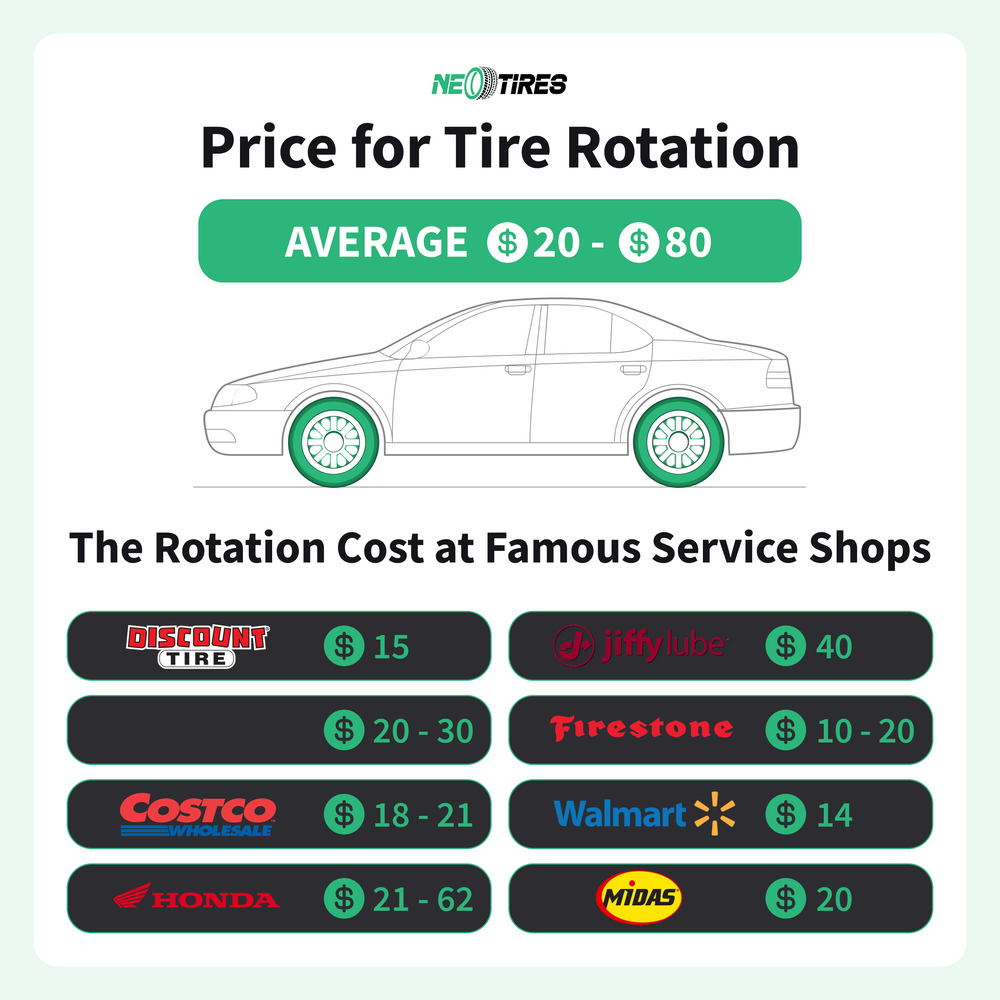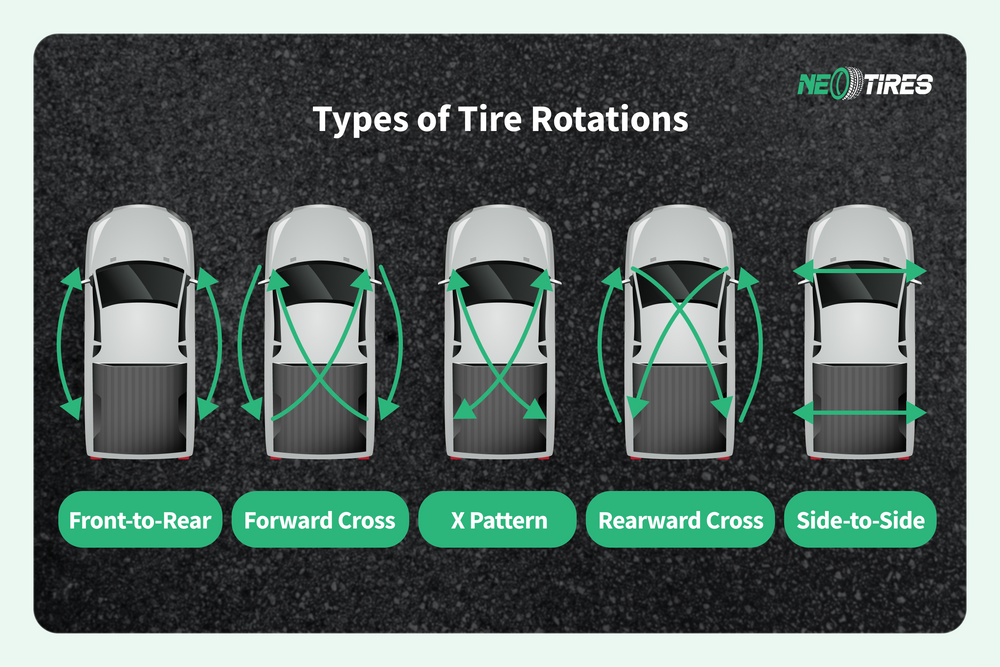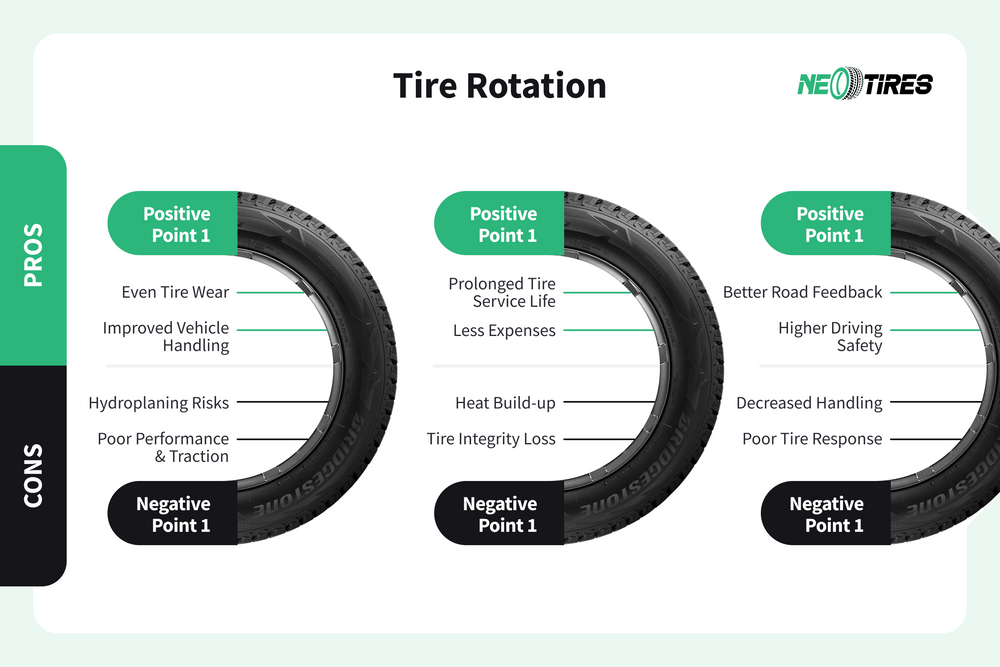If you are an experienced driver, you certainly know how important is tire rotation. On one hand, this procedure is simple and fast. On the other hand, it is extremely crucial for tire health and longevity. After all, you can have the best-performing car. But if its tires do not meet certain safety conditions, it will not be able to show itself to its fullest. Moreover, tires in poor condition pose a threat to driver's safety. And this is much more serious than any performance deficit.
While many drivers perform tire rotation regularly, a certain category, however, ignores it. The reason for ignorance is by no means a lack of responsibility. Rather, it is the fear of prices that scares drivers and makes them abandon this maintenance process. But I'm afraid that's not a good decision even if I understand that unplanned expenses create discomfort.
On the other hand, some drivers don't consider tire rotation as being essential. They erroneously believe that "tires will still serve as they should do" even without this procedure. I thought it would be useful to see how necessary tire rotation is, what its prices are, and if it makes sense for the driver's safety. For now, I can only tell you that tire rotation is not a waste of money at all. It is rather an investment.
What Is Tire Rotation? Is It That Important?
Let's start with the beginning, that is, with the brief definition of this maintenance procedure. For a more detailed explanation, you can consult our previous article in which we discussed this topic in detail. To refresh your memory, tire rotation involves changing the tires with the place in different rotation schemes. For example, the front ones go on the rear axle and vice versa. Alternatively, the tires on the left side go on the right side and vice versa. Mechanics can also use "X" shaped schemes. Regardless of the rotation scheme, the goal is the same: to even the stress that falls on each of the tires.
Just imagine: if the tire is not subjected to this process regularly, the stress, pressure, and weight of the vehicle constantly falls on the same area of the tire. As a result, the tire will wear out more in the stress area, leading to irregular wear on its surface. Also, each of the 4 tires will wear out in a different way, which will necessarily lead to a performance deficit.
For ultimate performance, all tires must have a more or less equal structure and wear. Otherwise, they do not operate in favor of traction and performance, but in mutual conflict. This leads not only to difficulties in driving but also to severe damage to the vehicle's internal components.
Taking into account all these aspects, we can conclude that avoiding tire rotation turns out much more expensive than its actual price.
How Often Should Tires Be Rotated?
Now that you understand the importance, let's talk about the frequency of this process. Manufacturers come up with a set of recommendations regarding tire rotation frequency. Depending on the tire type, rotation is recommended at intervals of 5,000-7,000 miles. You can find more detailed information in the user manual that you received with the car.
Either way, it would be good to rely not only on the manufacturer's recommendations. That is, you should take into account the conditions in which you drive. For example, you can rotate them earlier than 5,000 miles if you mainly drive on bad roads that affect the tire integrity and suspension components.
Likewise, your driving style is also extremely important. If you love drifting and aggressive driving, your tires are subject to increased stress and heat build-up. So, more frequent rotation than recommended would be a good maintenance technique to prevent their early and uneven wear.
Last but not least, the cargo you put on the car matters no less. If you are used to loading the car with extra load, your tires are subject to greater pressure. This leads to their uneven wear as pressure forces fall on a certain point of the tire. With that said, it is critical to observe the evolution of your tires over time and rotate them when you notice that they are under extra stress.
Tire Rotation Price
Now let's move on to what interests us more: the tire rotation price. First of all, each technical service center sets its prices for the services offered. As such, they may vary from one center to another. Secondly, keep in mind that the price of the rotation may depend on the type of vehicle. More advanced models usually require a bit more effort in the process, which influences the final price.
On average, tire rotation price starts at $24 and can reach up to $120 in certain cases. These prices should not scare you. Remember that ignoring tire rotation entails additional expenses for tire replacement or suspension repair, which by the way, might turn more expensive than that.
In the same sense, I recommend that you turn to a specialist when it's time for the rotation. Many drivers prefer to do it individually at home to save some money. While self-tire rotation might be an option, this comes with additional risks, unless you are a qualified specialist.
As a result, any wrong steps during tire rotation may endanger the driver's safety on the road. In addition, the technician knows better which rotation scheme is more suitable for your car. So, ask the help of the expert to rotate the tires in the most correct way possible.
At the end of the day, you can always find advantageous deals near you. Do a Google search and you may find affordable offers for rotating your tires. Why not benefit from great deals?! Here is what popular tire shops across the US offer for tire rotation:
Tire Rotation Pattern
Technicians and mechanics can suggest various types of tire rotation. They, first of all, will inspect the condition of the tires and decide which of the schemes is the most suitable. In addition, they will take into account the type of traction of your vehicle. So rotation just seems like a simple process. However, it requires a professional approach for maximum safety.
Below you have the illustration of the various rotation schemes that the technicians use. The experts will decide which ones suit your vehicle better. For more information on the essence of the tire rotation process, go to our article Tire Rotation Complete Guide. Drive safe and don't forget to schedule your tire rotation procedure.
What Does Rotation Mean On a Tire?
By rotation, the mechanics change the place of the tires on a vehicle. For example, the tires on the front axle are mounted on the rear axle and vice versa. There are many rotation schemes depending on the type of vehicle, the pattern, and the wear of the tires. This procedure aims to even out the tire wear and balance the weight distribution on them. Following rotation, the tires extend their lifespan and reduce the risk of defective driving.
Should You Really Rotate Your Tires And What if You Don't?
Yes, you definitely should. Rotation is a tire maintenance process that evens out the tire's external structure, reduces early wear, and improves the driving experience. Without rotation, the tires will wear unevenly, which will reduce their serviceability and potentially affect other internal components of the vehicle.
Is it OK to Rotate Tires Front to Back?
One of the most common rotation schemes is front-to-back. This scheme is mainly specific to directional tires because, due to their specific pattern, they cannot be rotated otherwise. Drivers who opt for directional tires can only rotate them in this format because the V-shaped pattern must always look ahead.
Does Tire Rotation Affect Alignment?
The tire rotation has no way to influence the alignment, only if the process is not done clumsily. The rotation takes place at the level of the rims and does not impact other internal components of the suspension. On the contrary, rotation will only help to improve performance and reduce the risk of uneven wear.
Can I Rotate My Tires Myself?
Technically, drivers can do this procedure by themselves at home. For this, they will need a set of special tools such as a car jack, stands, and lug nut wrench. Vehicle owners must be very cautious throughout the process in order not to leave room for errors. For maximum safety, we recommend that you contact a specialist if you are not sure about the tire rotation procedure.
How Much Is Tire Rotation?
Depending on the type of vehicle and the complexity of the process, tire rotation costs around $25 to $50. The price also varies depending on the location and dealer. Sometimes, the rotation can reach up to $120 if we talk about performance vehicles that require a special rotation technique.
Why Trust Us?
Neotires is proud of its team of professionals who help tens of thousands of drivers across the US every year. We are at the beginning of the road and we have only 5 years in this industry. However, the rich experience in the automotive field of each Neotires member helped us to grow quickly and win the trust of drivers.
Neotires mainly focuses on assisting drivers in everything that means tires. To be able to assist the drivers, we ourselves must first be highly trained in this field. In this sense, we are always involved in performance tests, research, analysis of official data, as well as the study of technologies in the tire industry. We are passionate about rubber innovations and advancements and we are always looking to find the best deals for our customers.
Our professional mechanics, testers, content writers, and trained customer care assistants love to see our customers happy and satisfied with the services and products we offer. Feel free to join them because Neotires is a dynamic community where we offer more than just tires. Here we learn, here we grow, and here we become more aware of how to improve our daily driving experiences! Drive safe!




